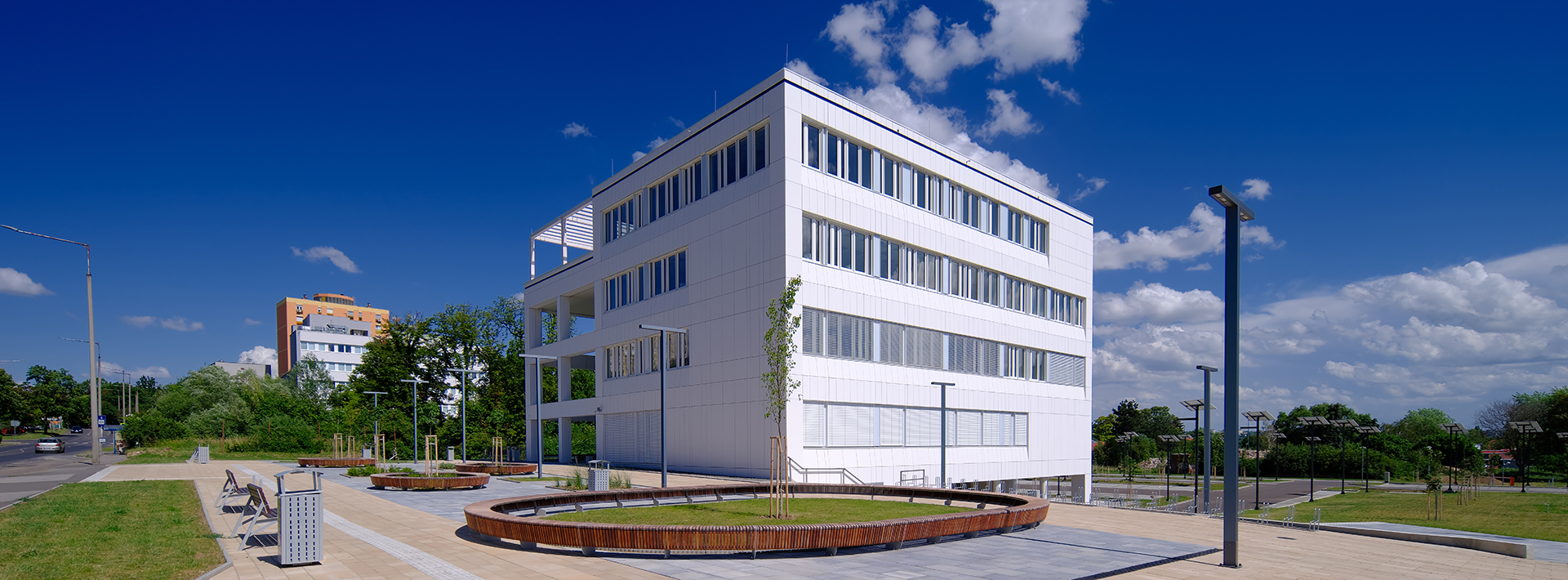Data
Official data in SubjectManager for the following academic year: 2024-2025
Course director
-
Szalma József
associate professor,
Department of Dentistry, Oral and Maxillofacial Surgery -
Number of hours/semester
lectures: 14 hours
practices: 28 hours
seminars: 0 hours
total of: 42 hours
Subject data
- Code of subject: OSK-SA2-T
- 3 kredit
- Dentistry
- Clinical modul
- autumn
OSP-FF1-T finished , OSP-SA1-T finished , OSR-DAS-T finished
Course headcount limitations
min. 5 – max. 30
Topic
The aim of this subject is to give basic information about dental and non-dental origin of inflammations and cysts of head and neck region and general dentoalveolar surgery.
Lectures
- 1. General anesthesia. Indications and contraindications. Anesthetic solutions. - Kövér Zsanett
- 2. Surgical removal of teeth and roots (sculptio). Consideration of flap preparation - Szalma József
- 3. Surgical removal of impacted and retained teeth I. wisdom teeth: indications, contraindications, complications - Szalma József
- 4. Surgical removal of impacted and retained teeth II. canines, premolars and supernumerary teeth: indications, contraindications, complications - Szalma József
- 5. Odontogenic inflammations and following consequences. Chronic periapical inflammations. - Szalma József
- 6. Surgery of the periapical space. Indications and contraindications of the resection. Retrograde root filling. Periapical curettage. - Szalma József
- 7. Periostits, abscess and cellulitis from dental origin. Symptoms and therapy. - Szalma József
- 8. Abscesses. Local anesthesia of inflammated areas. Rules of incision. - Szalma József
- 9. Osteomyelitis. Diagnosis and therapy. - Kövér Zsanett
- 10. Alveolar ostitis (dry socket syndrome). Osteoradionecrosis. BION - Szalma József
- 11. Phlegmone; development, symptoms and therapy - Kövér Zsanett
- 12. Non-specific and non-odontogenic inflammation of the head and neck - Kövér Zsanett
- 13. Specific inflammation of the head and neck. Actynomycosis. - Kövér Zsanett
- 14. Written assignment, consultation. - Szalma József
Practices
- 1. Patient treatment in the clinical practice
...
- 2. Patient treatment in the clinical practice
- 3. Patient treatment in the clinical practice
- 4. Patient treatment in the clinical practice
- 5. Patient treatment in the clinical practice
- 6. Patient treatment in the clinical practice
- 7. Patient treatment in the clinical practice
- 8. Patient treatment in the clinical practice
- 9. Patient treatment in the clinical practice
- 10. Patient treatment in the clinical practice
- 11. Patient treatment in the clinical practice
- 12. Patient treatment in the clinical practice
- 13. Patient treatment in the clinical practice
- 14. Patient treatment in the clinical practice
- 15. Patient treatment in the clinical practice
- 16. Patient treatment in the clinical practice
- 17. Patient treatment in the clinical practice
- 18. Patient treatment in the clinical practice
- 19. Patient treatment in the clinical practice
- 20. Patient treatment in the clinical practice
- 21. Patient treatment in the clinical practice
- 22. Patient treatment in the clinical practice
- 23. Patient treatment in the clinical practice
- 24. Patient treatment in the clinical practice
- 25. Patient treatment in the clinical practice
- 26. Patient treatment in the clinical practice
- 27. Patient treatment in the clinical practice
- 28. Patient treatment in the clinical practice
Seminars
Reading material
Obligatory literature
Szabo Gy.: Oral and Maxillofacial Surgery, Semmelweis, 2001.
Literature developed by the Department
Lecture notes
Notes
-
Recommended literature
Stanley F. Malamed: Local Anesthesia, Mosby 1990
Larry J. Peterson, Edward Ellis III, James R. Hupp, Myron R. Tucker: Oral and Maxillofacial Surgery, 1998
Conditions for acceptance of the semester
Attendance on lectures and practices is compulsory. No make up for missed classes. Missing more than 20% will automatically reject semester acceptance [i.e. 3 or more missing on lectures, or 3 or more missing from practices (where one practice block is 90=2x45 minutes)]and the semester has to be repeated .
Mid-term exams
There are two tests in this semester. The first, usually on the 7th week, the second usually on the 13th week. To write the test after an absence is only possible in the first week of the exam period. That is the way of gaining a better note.
Making up for missed classes
No possibility
Exam topics/questions
There are no special list of questions. Students write the test based on lecture materials.
Examiners
Instructor / tutor of practices and seminars
- Soós Balázs
- Szalma József
